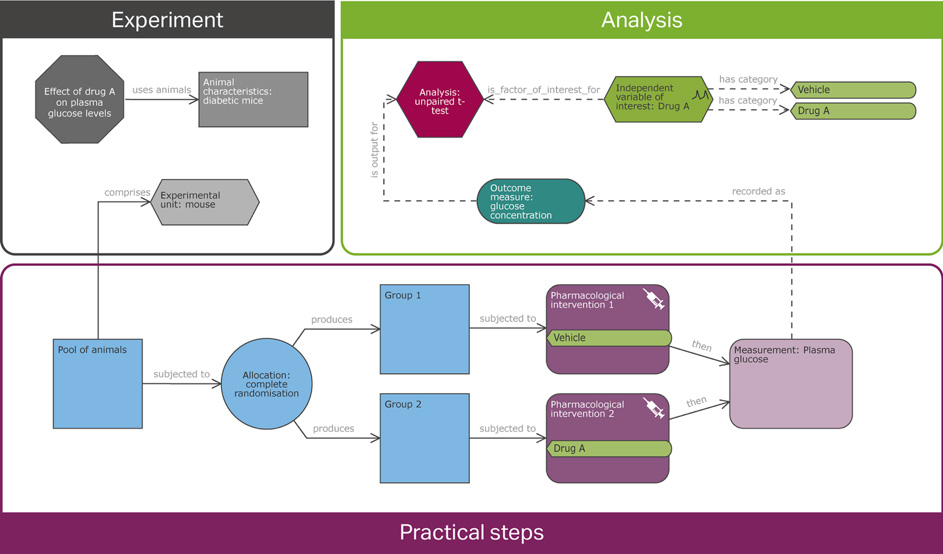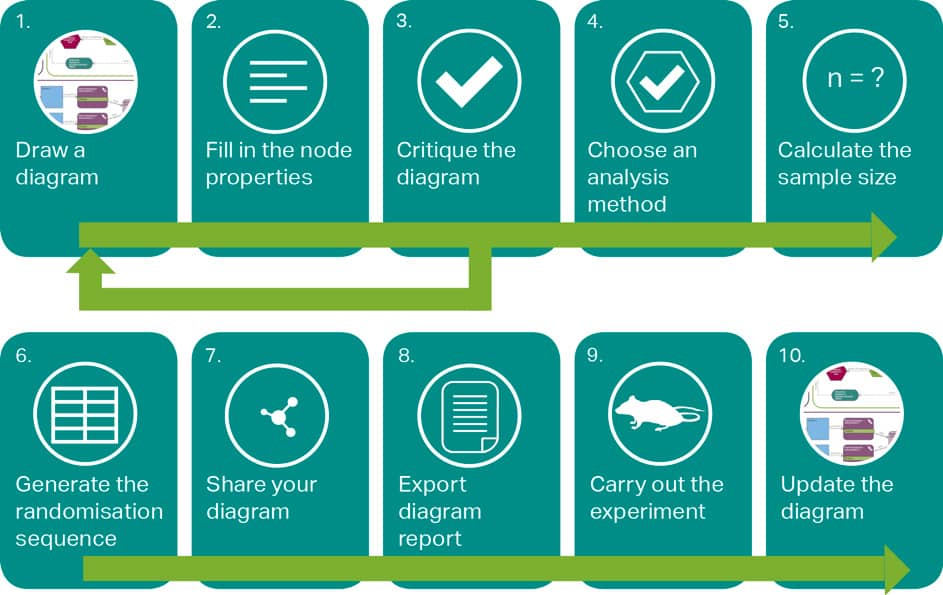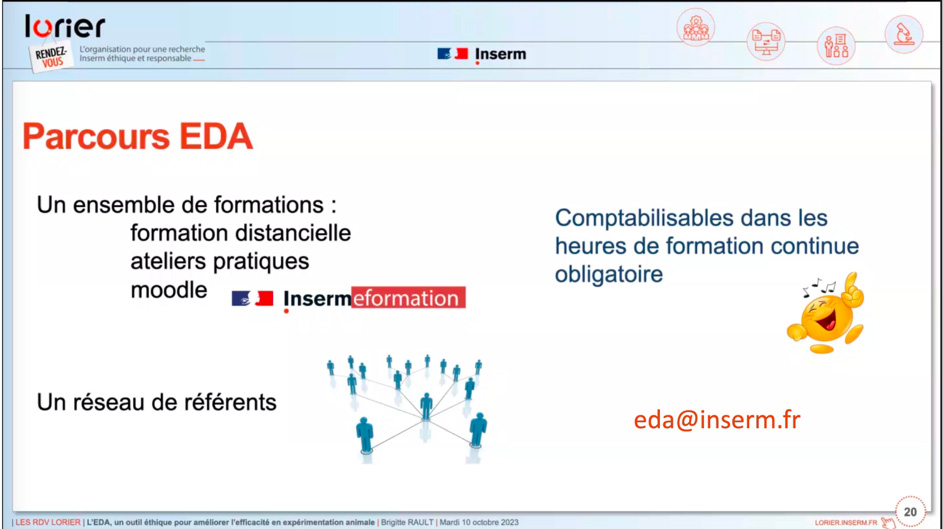

The next EDA webinar will take place on October 3, 2024
Who contact for the EDA course? eda@inserm.fr
Enhancing the reliability of animal studies
In animal research, the quality of experimental design is essential to guarantee the reliability and reproducibility of results (Kilkenny et al., 2009). The low reproducibility of research results and the robustness of scientific findings has become a major focus of attention (Nature 2018), particularly research using animals for scientific purposes, due to its impact on the number of animals used.
It is estimated that more than half of preclinical research is not reproducible, due to a number of factors, including poor experimental design, inadequate statistical analysis and a lack of rigour in reporting or monitoring experiments. This situation highlights the need to improve the design of animal studies to increase their reliability.
In 2017, the National Centre for 3Rs (NC3Rs) launched a tool called EDA - Experimental Design Assistant- to help researchers with this crucial process. Now used by more than 18,000 researchers worldwide, EDA aims to improve the quality of experiments by providing valuable support at the project design stage.
What is EDA?
EDA is a web based application which guide researchers develop robust and reproductible design of animal experiments (Percie du Sert N. et al. 2017). Accessible free of charge from the NC3Rs website, EDA allows you to build and visualize your experimental design in the form of a diagram, with each subject to evaluation and advice.

EDA features
In addition to the construction of an experimental design diagram, EDA offers several features to optimize experimental design:
-
A computer-aided design tool to develop a diagram representing the experimental plan,
-
feedback from an expert system on the experimental plan,
-
analysis suggestion,
-
sample size calculation,
-
randomization sequence generation,
-
support for allocation concealment and blinding,

In addition, the EDA website offers educational resources, in particular webinars, to enhance knowledge of experimental design and analysis, and help researchers better understand and apply these principles to their own experiments.
A training network for EDA software in France
In October 2023, Inserm's Ethics and Animal Models Office, headed by Brigitte Rault, presented the launch of the "Parcours EDA" in France during a Lorier webinar. This network, made up around fifteen experts, aims to train researchers in the use of EDA, thereby strengthening national skills in experimental design.
Since early 2024, Inserm's network of EDA experts has been offering a comprehensive training course based on the EDA tool, with three main components:
-
An introductory webinar covering the basic principles of experimental design and the use of EDA.
-
Video vignettes covering essential statistical concepts such as randomization, stratification and nuisance factors.
-
Hands on workshops for around ten people, enabling participants to put into practice the concepts covered in the webinar and videos.
These courses are open to researchers from Inserm and CNRS as well as to staff working in joint Inserm units.

In conclusion, the EDA tool provides a concrete solution for improving the quality of experimental design in animal research. It makes it possible to design robust, rigorous research projects that are easier to evaluate (CEEA, publishers, funders, etc.) and deliver reliable, reproducible results.
Visit the NC3Rs website or Inserm's EDA course in France, to learn more about this tool!
